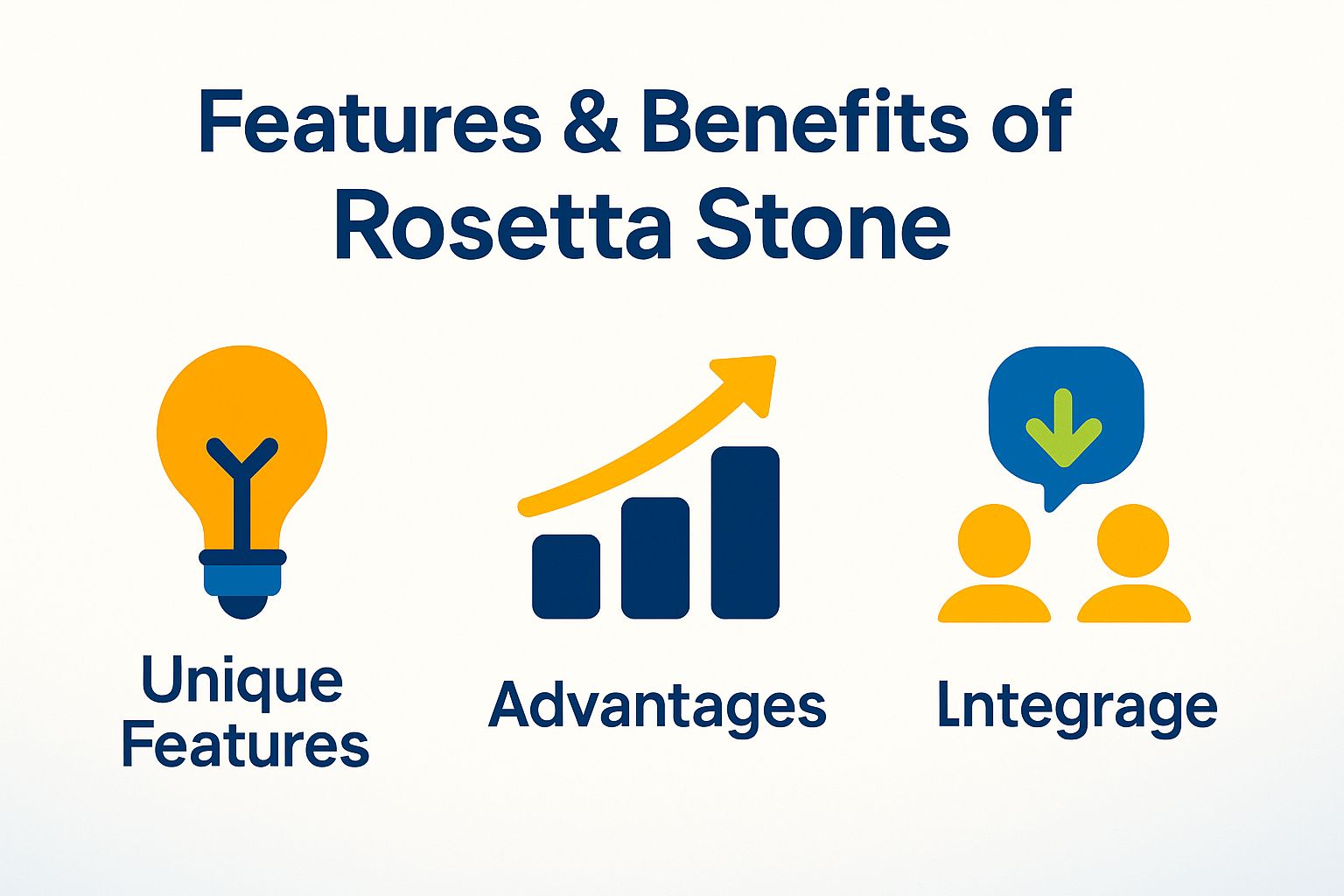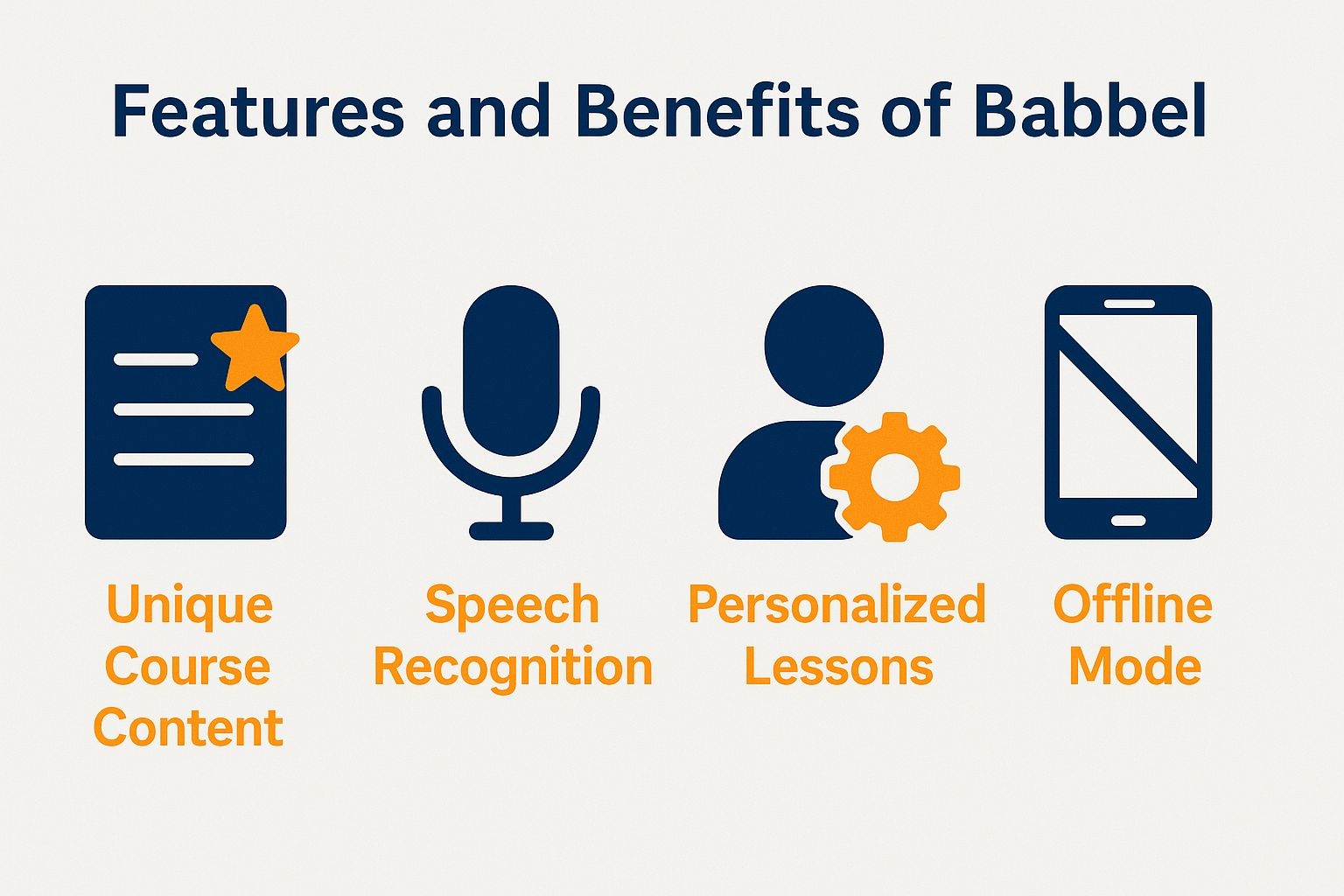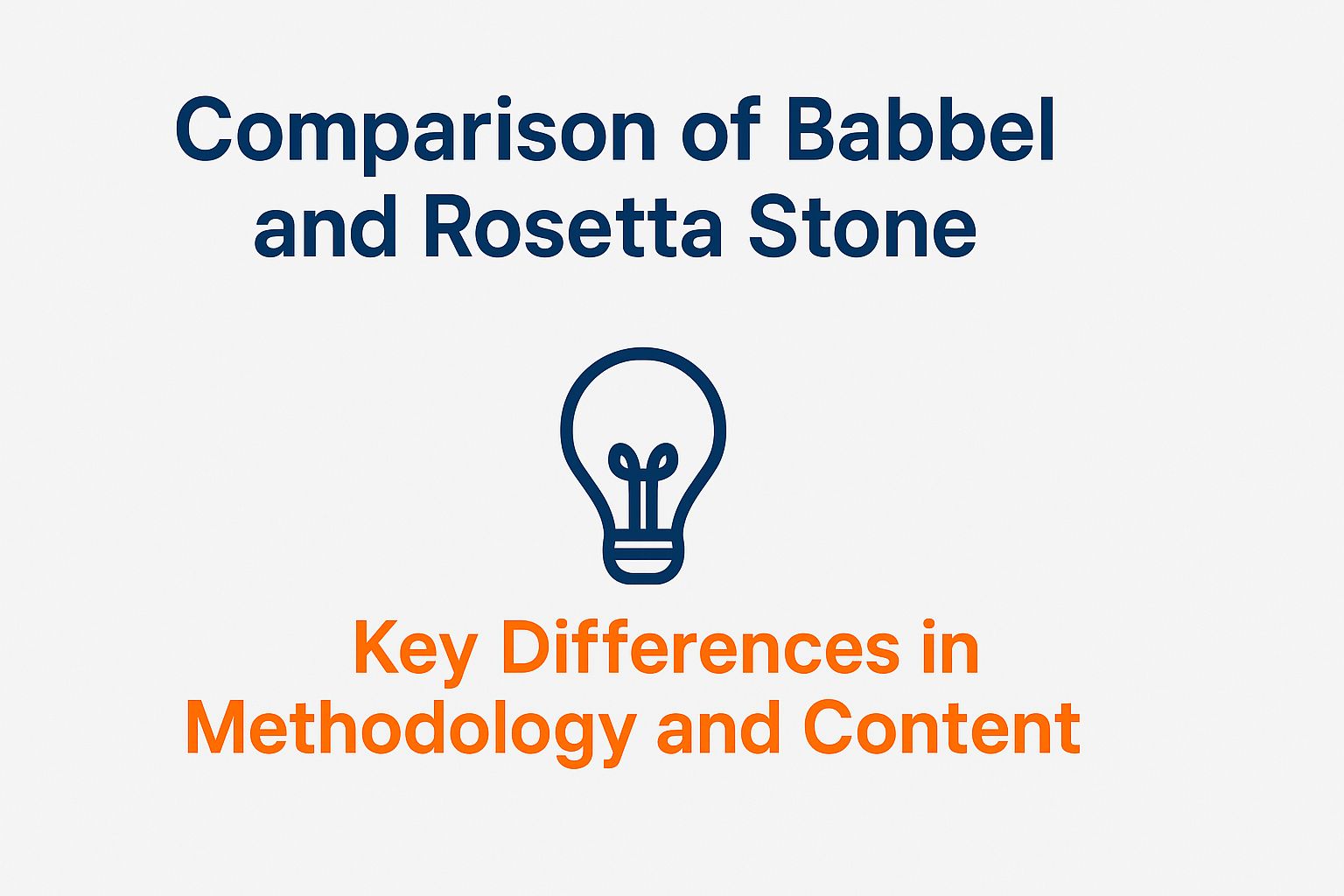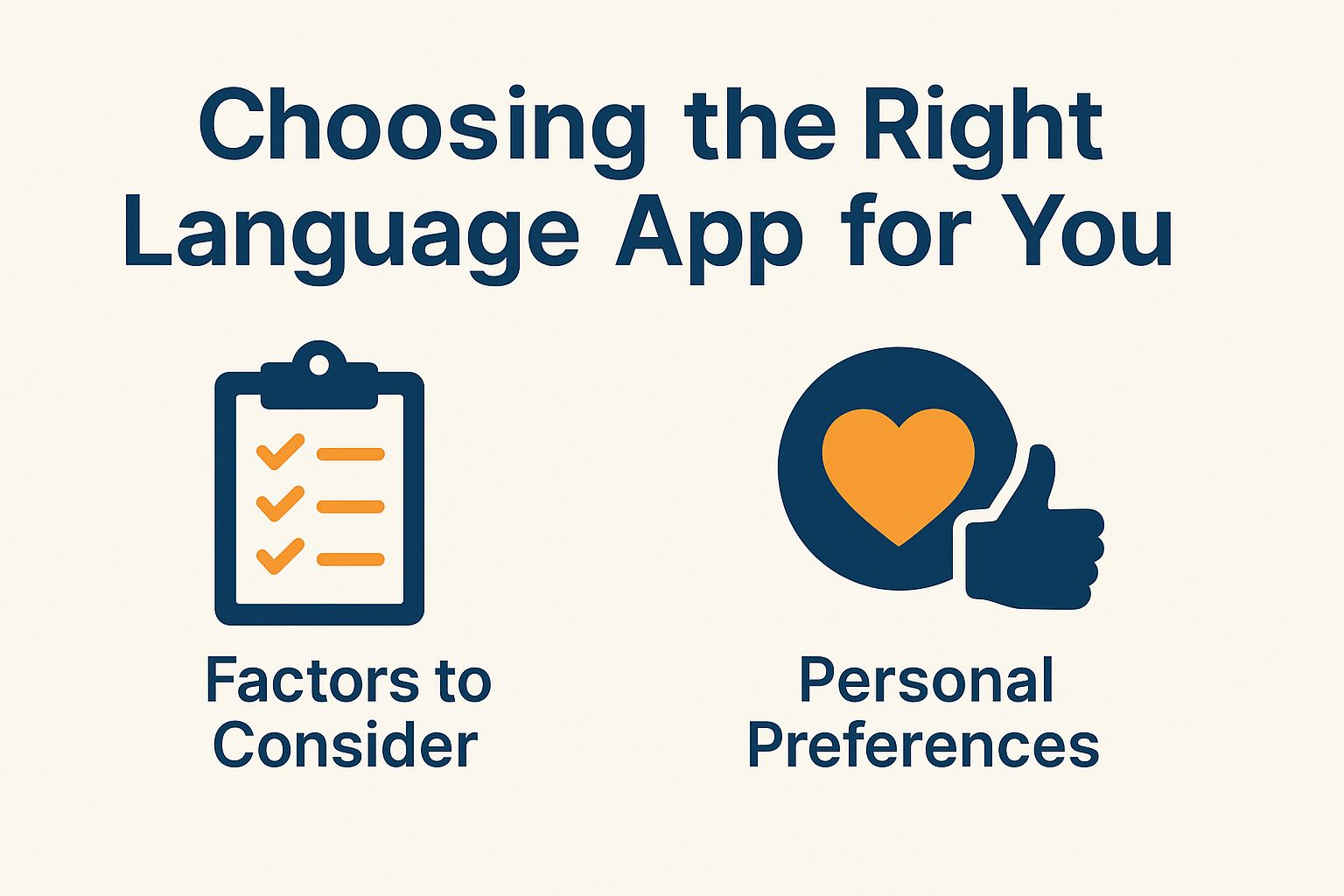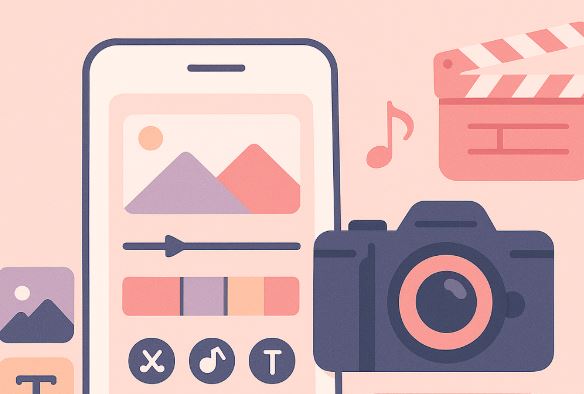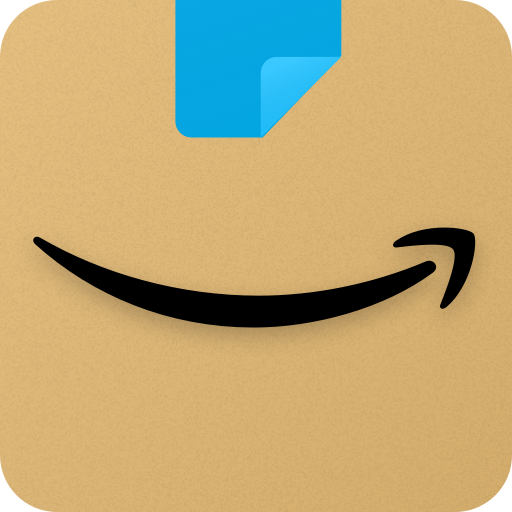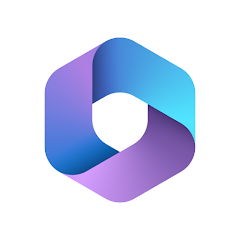Babbel vs. Rosetta Stone: Choosing the Right Language App
23rd September 2025
Diane Marley
Overview of Popular Options
Exploring the user interface and accessibility of each platform can further aid in understanding their effectiveness.
In today's globalized environment, proficiency in a new language holds significant value, prompting the emergence of various language applications to support individuals in their learning endeavors.
Notably, Babbel and Rosetta Stone have established themselves as two prominent platforms that provide comprehensive language courses tailored to accommodate diverse learning styles and preferences. Both applications utilize interactive lessons and multimedia resources, enhancing the language acquisition process and making it engaging and effective for users across various demographics, including those interested in language immersion.
When selecting the appropriate language app, it is essential to consider factors such as the range of courses offered, user experience, customer support, and the app's adaptability to individual learning objectives.
Features and Benefits of Babbel
Babbel provides a flexible scheduling option to cater to diverse learning paces.
Babbel is a well-regarded language application recognized for its intuitive interface and effective pedagogical approaches, which facilitate users in attaining higher levels of language proficiency, including grammar and vocabulary building.
The platform operates on a subscription model, granting access to a diverse array of language courses specifically designed to align with individual learning objectives.
With features such as interactive lessons, practice exercises, and speech recognition technology, Babbel cultivates a dynamic online learning environment that promotes engagement, motivation, and accountability.
Furthermore, its mobile application enables convenient learning on-the-go, enhancing accessibility, personalized learning, and flexibility for users.
Unique Features and Advantages
Babbel differentiates itself from other language applications through its distinctive features, including personalized learning pathways and a strong emphasis on cultural immersion. Users benefit from a variety of multimedia resources designed to accommodate diverse learning styles, thereby enhancing retention rates and overall language fluency.
The application utilizes adaptive learning techniques, modifying lessons according to user progress and proficiency levels, ensuring efficient progress tracking. Pronunciation practice is integrated throughout the courses, enabling learners to develop their speaking skills with authenticity.
The app offers interactive dialogues and engaging exercises that replicate real-life scenarios, thereby promoting practical language application. By incorporating elements such as podcasts, videos, and games, Babbel transforms traditional learning into an enjoyable experience that encourages consistent practice.
This innovative approach not only keeps learners motivated but also fosters a deeper understanding of the language within its cultural context and real-world scenarios. Furthermore, the structured feedback provided allows users to identify areas for improvement, ensuring a comprehensive learning journey tailored to their individual needs.
Features and Benefits of Rosetta Stone
Rosetta Stone includes a comprehensive feedback mechanism to enhance user satisfaction and learning outcomes.
Rosetta Stone is widely recognized for its immersive teaching methodologies, which prioritize the development of language skills through contextual learning and real-life scenarios.
The user interface is meticulously designed to offer a seamless online learning experience, facilitating ease of navigation and access to a diverse array of language courses.
With a subscription model that includes a free trial, learners have the opportunity to assess the platform's efficacy in enhancing language proficiency through engaging interactive lessons, comprehensive progress tracking, and effective teaching methodology.
Unique Features and Advantages
One of the distinguishing features of Rosetta Stone is its advanced speech recognition technology, which provides users with immediate feedback on their pronunciation. The platform also encompasses a diverse array of audio lessons, visual aids, and digital resources, catering to both auditory and visual learners.
This comprehensive methodology significantly enhances language retention and fluency, while community engagement options facilitate learners in practicing conversational skills with peers, thereby fostering a supportive learning environment.
By incorporating real-time pronunciation assessments, users are able to refine their accent and intonation, resulting in more natural and effective speech, enhancing language skills and comprehension. The interactive community elements of Rosetta Stone further enhance this experience, allowing learners to connect with one another, share insights, and engage in live conversations.
This collaborative approach not only boosts confidence but also immerses participants in a cultural exchange that enriches their understanding and practical application of the language.
The unique integration of technology and community transforms the language learning journey into a holistic and immersive experience, supported by user reviews and community forums.
Comparison of Babbel and Rosetta Stone
Analyzing the lesson structure and effectiveness of each platform can aid in choosing the right app.
When comparing Babbel and Rosetta Stone, it is important to analyze their distinct teaching approaches and methodologies to ascertain which platform aligns more effectively with individual learning preferences.
Babbel places a strong emphasis on interactive lessons and vocabulary development, whereas Rosetta Stone prioritizes immersive techniques, contextual learning, and cultural immersion.
Both platforms provide valuable educational content; however, their effectiveness may differ depending on the user's specific learning goals and style.
Recognizing these key differences can assist users in making an informed decision, considering their preferred learning pace and style.
Key Differences in Methodology and Content
The primary distinctions between Babbel and Rosetta Stone reside in their methodologies and the structuring of their language courses. Babbel's lessons are designed to be concise and concentrated on practical vocabulary, making them particularly suitable for individuals aiming to learn efficiently.
In contrast, Rosetta Stone provides longer, immersive lessons that prioritize understanding language within its context, thereby fostering deeper language acquisition through active engagement and cultural insights.
Babbel organizes its courses around specific topics such as travel, business, and everyday conversation, enabling learners to customize their experience based on personal interests and immediate needs, promoting personalized learning. This approach ensures that the material is not only relevant but also applicable in real-life situations.
Conversely, Rosetta Stone emphasizes a full-sensory learning method, integrating visual and auditory elements to promote learning through context rather than direct translation. This approach may be particularly appealing to those who thrive in diverse, interactive learning environments and prefer a comprehensive immersion into the language, facilitating a natural ability to think in their target language, supported by native speakers and peer interaction.
Choosing the Right Language App for You
Choosing the appropriate language application can be a critical step in achieving language learning objectives, necessitating a careful evaluation of several factors that align with individual preferences and requirements.
It is important to consider user demographics, app accessibility, and the specific learning goals that one aims to accomplish.
Both Babbel and Rosetta Stone provide trial periods, enabling users to explore the platforms before making a subscription commitment, thereby facilitating the selection of the most suitable option for their learning style.
Factors to Consider and Personal Preferences
Examining the app features and how they align with learning goals is crucial.
When selecting a language application, it is essential to consider personal preferences that affect engagement and retention rates, including learning pace and teaching style. Pricing structures also play a significant role in the decision-making process, with options ranging from subscription models to one-time purchases.
A thorough evaluation of these factors can assist in identifying the app that best aligns with individual needs, ultimately resulting in improved language skills, retention rate, and user satisfaction.
The adaptability of an app to various learning styles can greatly enhance the user experience. Some learners benefit from visual aids, review sessions, and interactive exercises, while others may find audio and text-based methods more effective.
Additionally, it is important to assess how the platform promotes regular practice, as consistent engagement is crucial for improving retention and fluency. Pricing may also influence accessibility for many users; an affordable application with comprehensive features and lesson variety can be equally effective as a more expensive alternative.
Consequently, understanding these elements not only informs the selection of the app but also significantly impacts the overall language learning journey, success, and completion rates.
Frequently Asked Questions
What is the difference between Babbel and Rosetta Stone?
Babbel and Rosetta Stone are both language learning apps, but they have different approaches and features. Babbel focuses on conversation and practical vocabulary, while Rosetta Stone uses immersion and contextual learning.
Which app is better for beginners?
If you are a beginner in language learning, both Babbel and Rosetta Stone can be effective with their unique instructional design. However, Babbel is a better option for those who prefer a structured and systematic approach with detailed lesson plans, while Rosetta Stone can be great for those who learn better through immersion, visual cues, and gamification techniques.
What is the pricing difference between Babbel and Rosetta Stone?
Babbel offers a subscription model, with prices starting at $12.95 per month, and includes various study materials and offline access. Rosetta Stone offers a one-time purchase option, with prices ranging from $179 to $299 for a lifetime subscription, which includes access to progress reports and coaching. Both also offer discounts and promotions from time to time, making it easier to manage your learning schedule.
Do Babbel and Rosetta Stone offer the same languages?
No, Babbel offers 14 languages, including Spanish, French, and German, while Rosetta Stone offers 24 languages, including lesser-known ones like Persian and Tagalog. Each platform's languages offered can suit different educational backgrounds and language comprehension levels. It's best to check the app's language offerings and course content before making a decision.
Are Babbel and Rosetta Stone suitable for all ages?
Both apps are suitable for users of all ages, with Babbel offering a "kids mode" for children and Rosetta Stone offering a "travel mode" for adults. Additionally, with self-paced learning and language challenges, they cater to different learner engagement levels. However, Babbel may be more appealing for young learners due to its quizzes and review tools, while Rosetta Stone may be preferred by older learners for its thorough repetition and language exchange features.
Can I try out Babbel and Rosetta Stone before committing to a subscription?
Yes, both apps offer a free trial period for new users to test out their features and lessons. This is a great way to see which app works best for your learning style, delivery methods, and needs before making a commitment.
